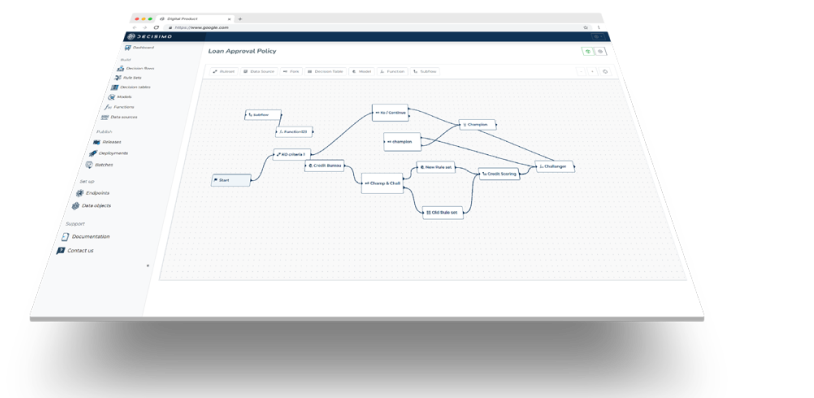Why Complex, Branching Rules Pose a Danger to Your Business- Decisimo
Published on: 2024-08-10 18:36:09
As businesses scale, their decision-making processes often get complicated. Many organizations rely on decision management platforms like Decisimo to set up rules for these processes.
Yet, going with complex, branching rules isn't necessarily the best course. Here's why:
Drawbacks of Complex, Branching Rules
Branching rules can be maintenance nightmares. They're often difficult to understand and comprise numerous interdependent parts.
Such complexity makes it tough to track active rules, their purposes, and origins. This can lead to mistakes and issues when modifying or updating the rules.
Additionally, complex rules can obscure critical business terms that should be clearly defined. This lack of clarity may cause misunderstandings within the organization.
Testing and debugging these rules also become troublesome. It's often hard to pinpoint issues within a tangle of interconnected conditions, leading to time-consuming and costly fixes.
Modular Rules: A Better Alternative
Instead of creating a labyrinth of complex rules, consider a modular approach. This means breaking down intricate rules into smaller, easier-to-manage pieces.
This makes each rule clear and easy to maintain, with terms that are universally understood. Smaller rules are also simpler to test and debug, facilitating quicker issue resolution.
Advantages of Modular Business Rule Management
Complex rules may seem effective but often bring more risks than benefits. They are harder to maintain, can cloud key business terms, and make debugging a chore.
A modular setup, on the other hand, makes rules easier to understand and maintain, thus serving as a more efficient and transparent system for decision-making.


